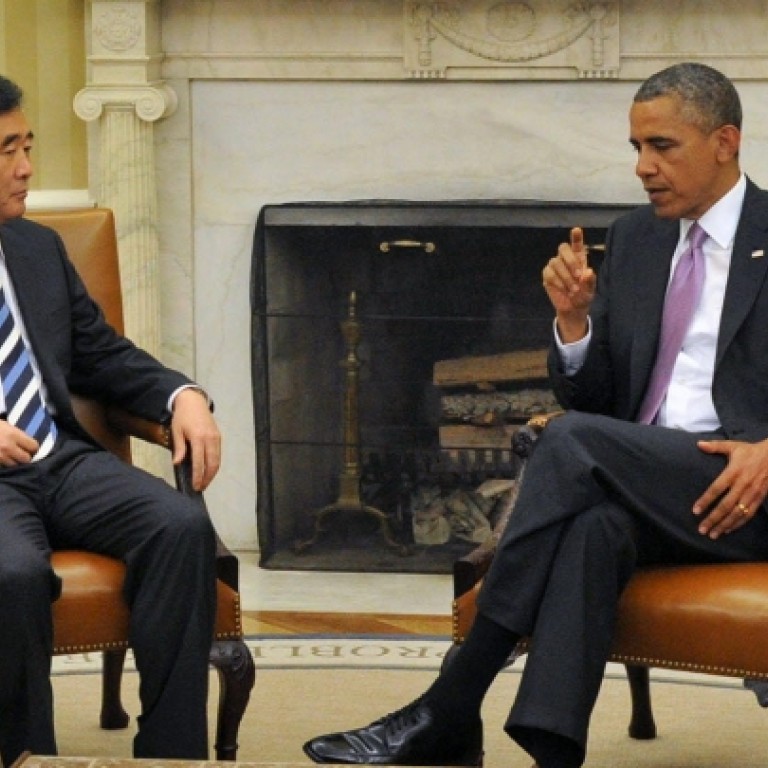
Obama calls on China to exercise maritime restraint
President Obama warns China against use of force or intimidation in maritime disputes with neighbouring countries
US President Barack Obama has warned China against using force or intimidation in maritime disputes - a remark seen by one analyst as a message intended to reassure Washington's Asian allies.
Obama's warning came as top officials from both nations wrapped up their annual strategic and economic dialogue in Washington on Thursday, and a US admiral highlighted the possibility of "miscalculation" by young commanders that could lead to conflict between the two military powers in the Asia-Pacific region.
One focus of the talks was to build a "new type of major country relations" with the aim of preventing confrontations between the two nations, officials said.
A statement released by the Foreign Ministry said the two militaries agreed to explore setting up a bilateral notification mechanism to deal with major military plans.
Beijing has been irked by the strengthening of the US military presence in the region and its bolstering of relationships with countries involved in territorial disputes with China. The statement said China called on the US to refrain from complicating the matter.
Obama made the comment in a meeting with Vice-Premier Wang Yang and State Councillor Yang Jiechi . He "urged China to manage its maritime disputes with its neighbours peacefully, without the use of intimidation or coercion", a White House statement said.
Observers said Obama's warning was a reiteration of the existing US stance on territorial disputes in Asia, but his latest remarks were still an important signal to both China and neighbouring countries.
Danny Russel, then senior director for Asia at the National Security Council, said in February that Obama opposed coercive action. Russel made similar remarks last month.
"When China called for a new type of relationship with the US, there were fears over whether such a relationship would be equal to, or even override, ties between Washington and its Asia allies," said Pang Zhongying , an international relations professor at Renmin University. "The US has to reassure the allies of its support."
Japan's chief cabinet secretary, Yoshihide Suga, said he welcomed Obama's message. "The remarks are in line with the stance of Japan," he said.
In a separate briefing, US Pacific commander Admiral Samuel Locklear said as China increases its reach, young and inexperienced troops could "find themselves in difficult positions" that lead to "miscalculations".
Ni Lexiong, director of the Sea Power and Defence Policy Research Institute at Shanghai University of Political Science and Law, said risks of military confrontation exist.
But he said the Chinese military should not be blamed. He also said full-scale conflict was unlikely as nations would settle disputes through dialogue.
Jin Canrong , a US affairs expert at Renmin University, said there was "a long way to go" for the "new relationship" because of differences between the two. But the dialogue had allowed officials to build a rapport.
Professor Jia Xiudong from the China Institute of International Studies said agreements reached between the two, including setting up hotlines for special representatives of the two presidents, showed progress in managing differences.

